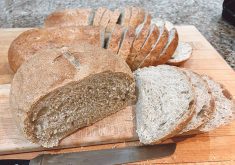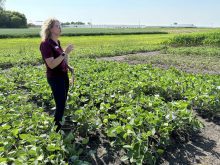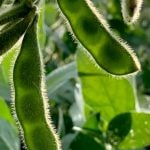A farmer’s ability to save seeds could be threatened if the Comprehensive European Trade Agreement (CETA) includes the changes to plant breeders’ rights, says the National Farmers Union (NFU).
Canada’s current system of plant breeders’ rights is based on the International Union for the Protection of New Varieties of Plants Convention’s (UPOV) 1978 framework. But CETA proponents and industry groups are pushing Canada to adopt UPOV’s more restrictive 1991 regime, said NFU president Terry Boehm.
“If you bring in this UPOV ’91 system, then all of a sudden — even if you have public varieties — you get forced into buying more and more seed on a tighter and tighter schedule,” he said. “UPOV ’91 will make it much more difficult for farmers to save and reuse seed.”
Read Also

A place of national honour for former deputy ag minister, Dori Gingera-Beauchemin
Long public service, focus on community and industry leadership launch Dori Gingera-Beauchemin into 2025 Canadian Agricultural Hall of Fame honourees
While a “farmer’s privilege” to save seed is largely respected by the earlier convention, Boehm said the more recent version would prolong breeders’ rights to collect royalties, as well as give control over standby utility.
Boehm said UPOV ’91 gives plant breeders the right to hold “the exclusive rights to control the conditioning and the stocking of the seeds.”
That translates into control over seed cleaning and storage, he added.
It would also allow for cascading rights, or the collection of royalties at points other than the point of sale. In some jurisdictions, this has meant farmers pay additional royalties when crops are harvested, said the NFU representative.
Organizations in support of increased rights for plant breeders say that without more control and greater revenue, innovation won’t be possible.
Boehm disagrees, and said this is a part of a larger move to privatization in the research sector. Where universities and other public institutions once developed public varieties, private companies are now producing plant varieties governed by patent laws.
“Once again we are being told innovation is the answer, but it is a particular form of innovation that is built on high profits for the private sector,” he said. “Public research and variety development, which was the norm until recently, is being dismantled and underfunded.”
He encouraged farmers at a recent NFU convention to urge the federal government to not adopt UPOV ’91.


















